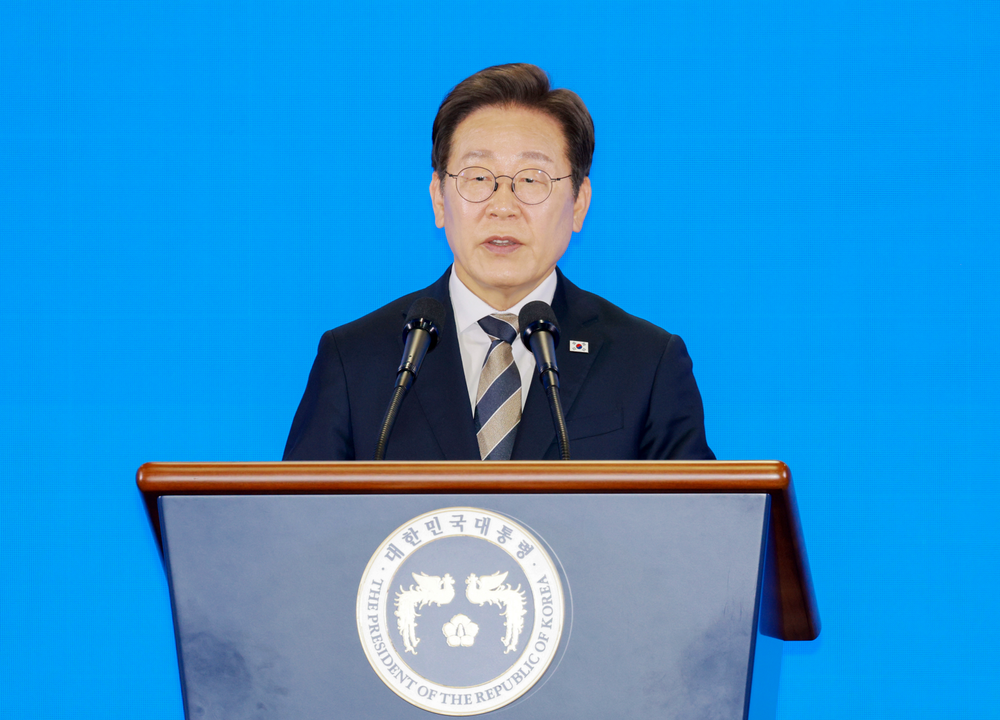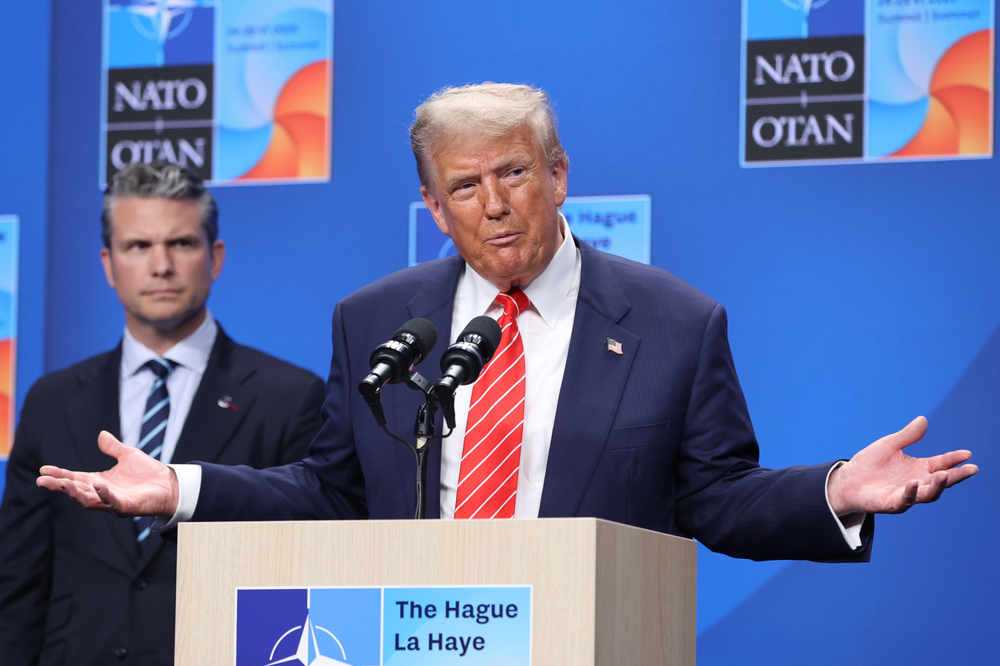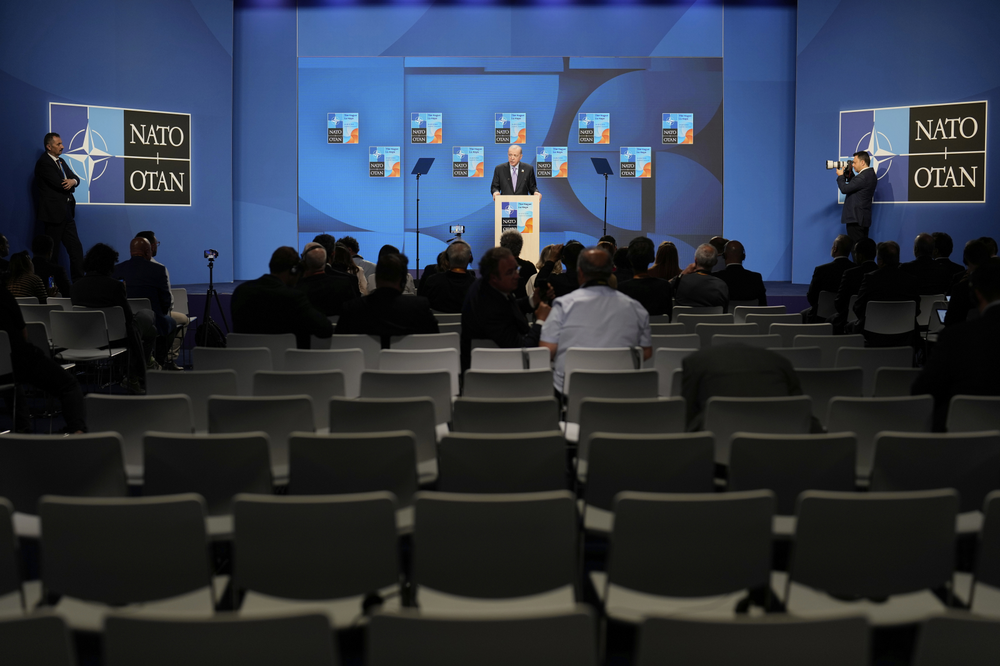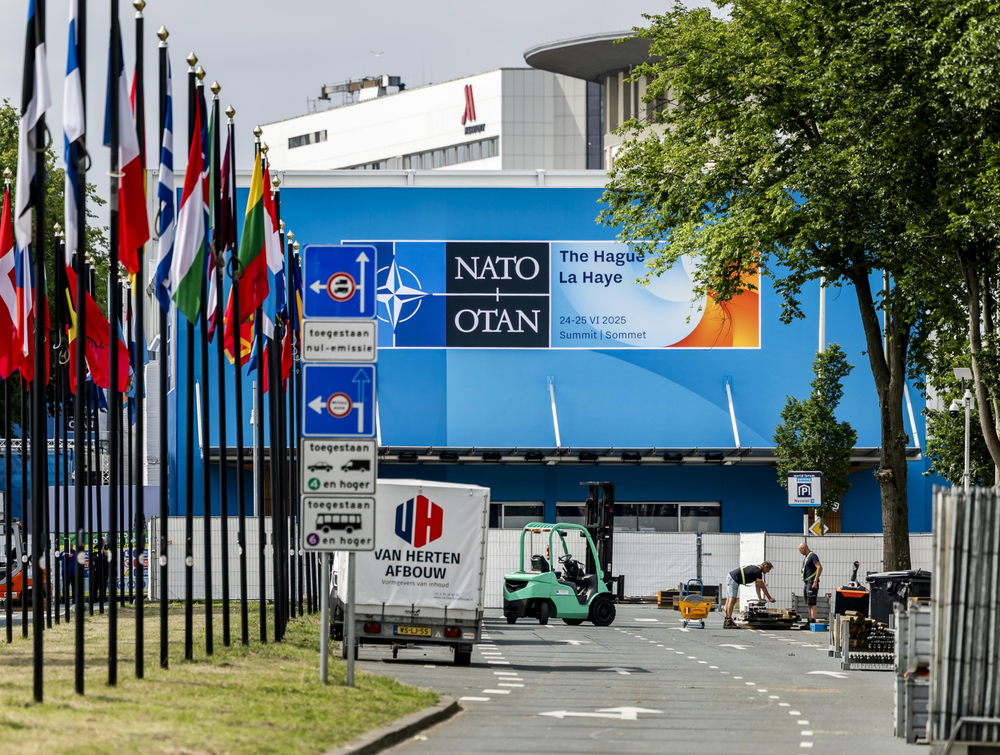
- The forthcoming North Atlantic Treaty Organisation
(NATO) summit in the Netherlands is a timely opportunity for South Korea to
reassert its commitment to the rules-based order as a key US ally while
simultaneously furthering its economic and security interests.
- Through this investment and through the support of
companies such as US tech giant OpenAI, Lee intends to transform South Korea
into one of the top three global powerhouses in AI.
- If Lee attends the summit, his participation could
bolster NATO’s confidence about South Korea’s commitment to the US-led
rules-based order despite growing South Korea-China economic engagement.
The
forthcoming North Atlantic Treaty Organisation (NATO) summit in the Netherlands
is a timely opportunity for South Korea to reassert its commitment to the
rules-based order as a key US ally while simultaneously furthering its economic
and security interests. Although not a NATO member, South Korea’s involvement in
the informal Indo-Pacific Four (IP4) grouping along with Australia, Japan and
New Zealand, has provided an avenue for the country to participate in the NATO
summit as a partner since 2022.
The
NATO summit comes at a significant time of domestic and regional challenge for
South Korea. Along with cost-of-living pressures and sluggish domestic
consumption, the US’s imposition
of 25% tariffs has compounded South Korea’s domestic economic woes. Economic
rejuvenation is accordingly a top priority for Lee, as reflected through the
launch of a
dedicated task force to support tariff negotiations with the US. However,
the issue of tariffs continues to be a key headache for Lee, especially as a much-anticipated
side meeting between the two countries at the G7 was cancelled
due to Trump’s early departure.
Aside
from tariff negotiations, Lee aims to rejuvenate South Korea’s ailing economy
through a pledged investment of 100 trillion won into the domestic development
of artificial intelligence (AI). This focus on
“AI by Korea, for Korea, and of Korea” will furthermore assist South Korea to
respond to geostrategic instability in the Indo-Pacific through the development
of a sovereign capability in a key tech area. Through this investment and
through the support of companies such as US tech giant OpenAI,
Lee intends to transform South Korea into one of the top three global
powerhouses in AI.
Although
domestic economic concerns are currently Lee’s top priority, the NATO summit
could offer an opportunity for South Korea to further its economic interests. If
Trump decides to attend the NATO summit, this could provide an avenue for Lee
to engage in an in-person dialogue with Washington DC to reach a mutually
beneficial solution about tariffs sooner rather than later.
Even
if Trump doesn’t attend, the summit could be an opportunity for South Korea to
secure new export markets if the proposed
increase to the domestic defence budgets for NATO countries goes ahead. As the
world’s eighth
largest weapons exporter, South Korea would be well-placed to meet growing demand
form by scaling up its existing defence industry cooperation with NATO
countries like Poland and Romania. With South Korea’s goal to become a world
powerhouse for AI capabilities, the export of military AI could be one key focus
of South Korea’s future defence industry cooperation with NATO countries.
On
the national security front, preserving peace and stability on the Korean
Peninsula continues to be South Korea’s top priority. However, in contrast to
Yoon’s previously antagonistic approach to the North, Lee wishes to advance the
goal of cross-border dialogue in line with the Democratic Party of Korea’s standard
policy goal. On the backdrop of growing inter-Korea tensions, as seen through North
Korea’s reversal of its policy goal to reunify with the South and its escalating
cooperation with Russia,
Lee has pledged to restore
military-level communications and is open to Trump’s potential role in
reinstating talks with Kim. However, when it comes to collaboration on the
Korean Peninsula, Trump will first and foremost be interested in reaching a
solution with Seoul about burden
sharing the ongoing costs associated with deploying US troops to the
region.
Aside
from the burden sharing issue, what further complicates Lee’s engagement with Trump
is South Korea’s growing relationship with partners including China. Under
Lee’s approach of “pragmatic diplomacy” to foreign policy, South Korea intends
to balance relationships with regional partners including the US, China, Japan
and Russia to best secure its economic and security interests. In anticipation
of Lee’s election victory, China in fact bolstered economic ties with South
Korea by easing
its unofficial ban on South Korean cultural imports including K-Pop. This
ban had originally been imposed from 2016 in retaliation for US’s deployment of
a THAAD missile on South Korea soil.
If
Lee attends the summit, his participation could bolster NATO’s confidence about
South Korea’s commitment to the US-led rules-based order despite growing South
Korea-China economic engagement. Lee in fact already reiterated
his desire to build cooperation with the US, as well as with Japan, in his
inauguration speech earlier this month.
Furthermore,
attending NATO would be an opportunity for Lee to demonstrate his commitment to
regional minilateralism through the IP4 grouping. Although Australian Prime
Minister Albanese is not personally attending, the summit will enable Lee to prioritise
key regional issues with Japan
and New
Zealand’s respective leaders. On the backdrop of Lee’s desire to build productive
cooperation with North Korea, the IP4 meeting will enable key Indo-Pacific
democracies to discuss the way ahead on this security issue. In particular, the
IP4 meeting could be an opportunity to bolster Japan’s role on inter-Korea
cooperation, as previously seen in 2023 through the Camp
David Summit with the US and South Korea.
While
the upcoming NATO meeting may seem like yet another example of summit diplomacy,
if leveraged properly it could be an integral avenue for the new South Korean administration
to advance its key economic and security interests especially if Lee personally
attends. Although Lee will continue to bolster ties with regional partners like
Beijing, his participation would send a strong signal to reiterate Seoul’s role
as a reliable partner of choice for Washington DC, NATO countries more broadly
as well as IP4.
Afeeya Akhand is a researcher in the Cyber, Technology and Security Program at the Australian Strategic Policy Institute.


